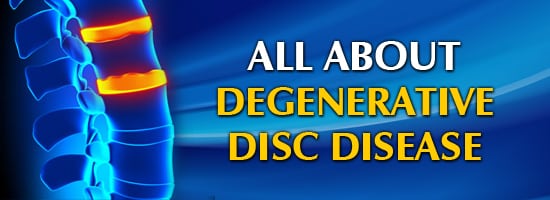
Degenerative disc disease is a very painful condition caused by normal changes to your discs. The discs in your back separate the vertebrae in your spine and act as shock absorbers.
How does degenerative disc disease occur?
Your spinal discs can break down over time due to aging and loss of fluid, making them less flexible. This causes tiny cracks to form in the outer layer of the discs, and then the material inside the disc is forced out, creating a bulge. This condition most commonly affects the discs in your lower back and in your neck, but it can develop anywhere in your spine.
What are the risk factors for degenerative disc disease?
Since degenerative disc disease is caused by aging and normal wear and tear on your spine, there is no specific preventable cause for the condition. However, certain traits and activities could place you at an increased risk. Individuals who smoke cigarettes, are obese, or do a lot of physical work or heavy lifting are more likely to develop degenerative disc disease. Sudden injuries that lead to a herniated disc can also start the development of degenerative disc disease.
What are the symptoms of degenerative disc disease?
The symptoms of degenerative disc disease vary greatly from one person to the next. Some experience no pain at all, while other patients experience severe pain. The exact type of pain you have also depends on where the affected discs are located. If your affected discs are in your neck, you might experience neck or arm pain. If the discs are in your lower back, you could have pain in your legs and buttocks.
Often, the pain gets worse with movements such as reaching up, bending down, and twisting. You can also experience numbness and tingling in the legs and arms. Degenerative disc disease can be diagnosed with a physical exam, a check for range of motion, and imaging tests.
How is degenerative disc disease treated?
Treatments for degenerative disc disease include ice therapy, heat therapy, non-steroidal anti-inflammatory medications, physical therapy, and exercises. If there is an underlying cause leading to the condition, such as osteoarthritis or a herniated disc, that will need to be treated first.
In rare cases, surgery to remove the damaged disc might be necessary.


